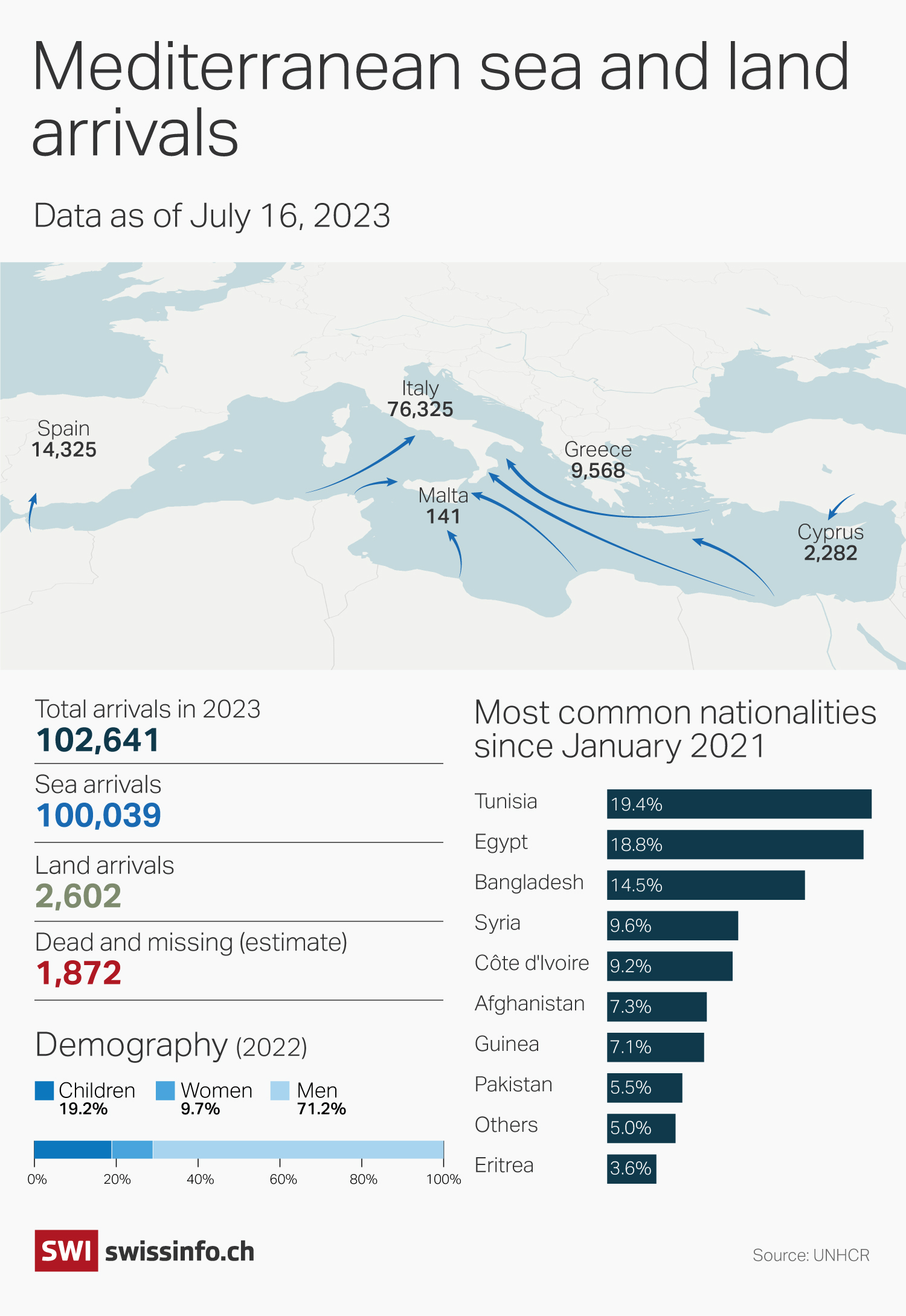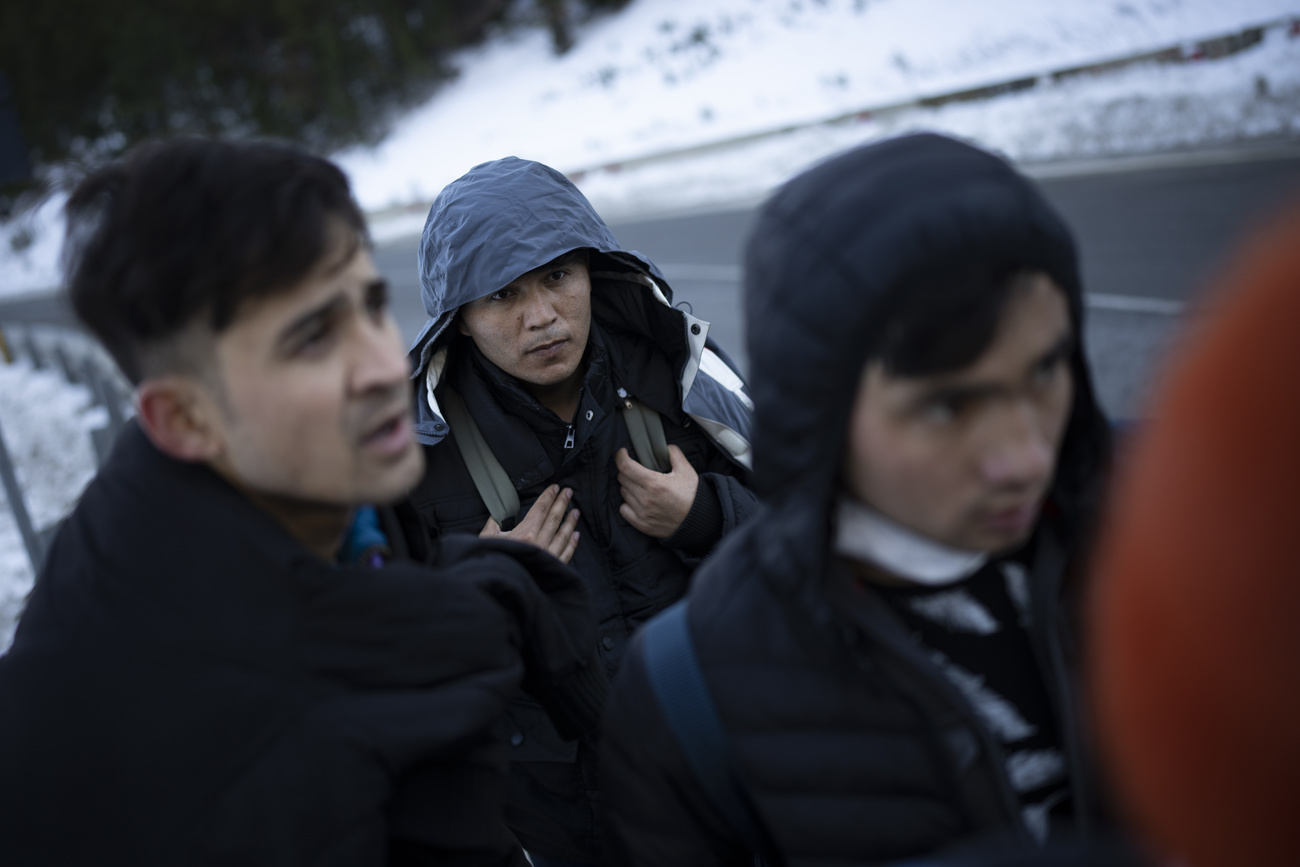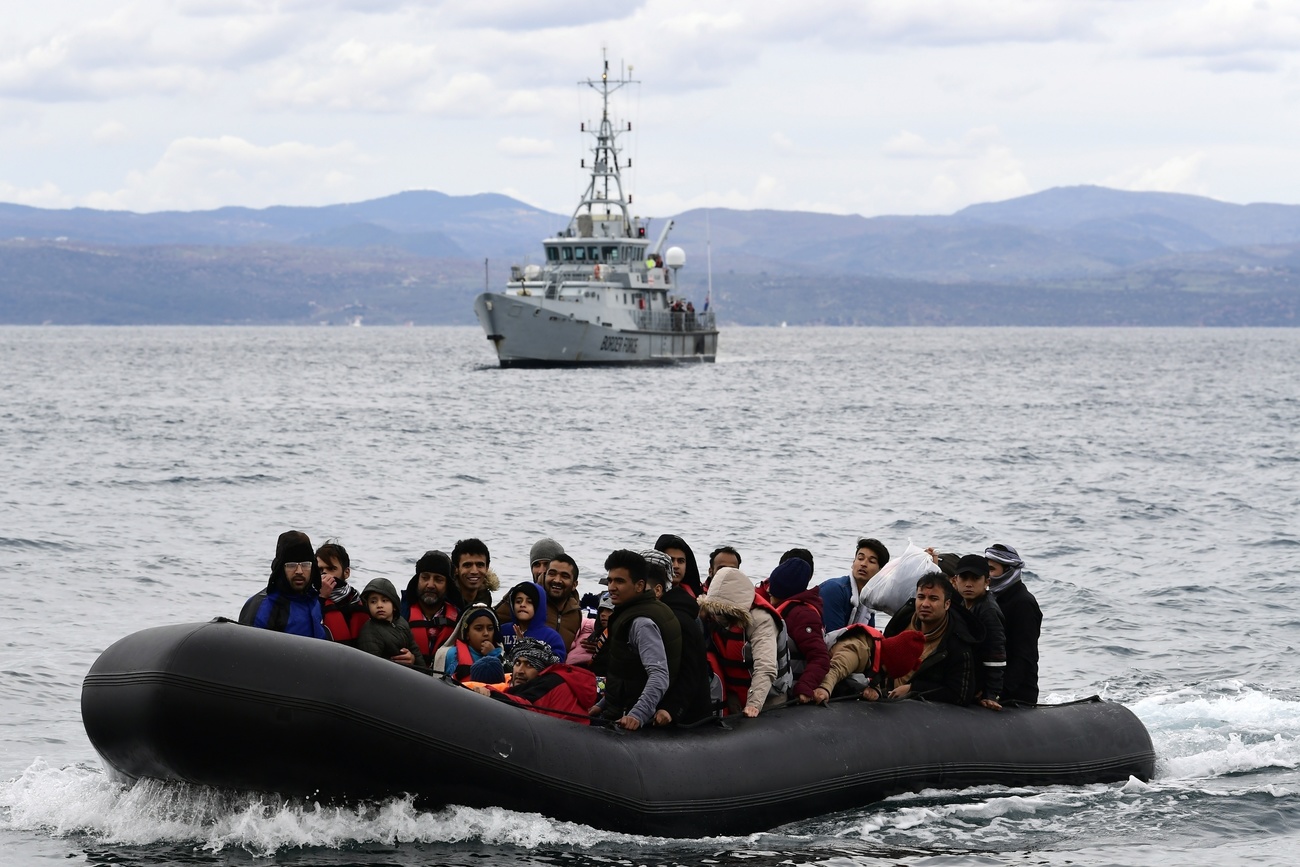Europe chips away at refugee law as migrant deaths soar

On July 7, during a rescue operation by SOS Méditerranée, the Libyan coastguard fired shots close to the NGO boat, putting the crew’s lives at risk as well as those of rescued migrants.
Denouncing the incident, SOS Méditerranée and the International Federation of Red Cross and Red Crescent Societies (IFRC) called on all governments “to ensure humanitarians can provide lifesaving support at sea without risking their lives”.
The team had just rescued 11 migrants from a shipwreck in international waters off the Libyan coast, using inflatable boats. Although all the migrants and rescue workers made it safely back to the Ocean Viking mothership operated by the two NGOs, several sustained injuries, including the leader of the inflatable rescue boat closest to the Libyan patrol vessel. “The impact of the wake created by the Libyan patrol vessel on our boats was so strong that I injured my back. As they continued shooting and chasing us, the safety of the rescued people and crew were in the hands of a gunman,” he says in the July 10 press releaseExternal link.
The European Union and Switzerland continue to fund the Libyan coastguard despite its criminal links and abuse of migrants. Switzerland also contributes funding to the European Border and Coast Guard Agency (Frontex). Last year, Swiss voters backed more funding for Frontex, but opponents said it would make Switzerland complicit in human rights abuses and illegal pushbacks.
In the UK, parliament has now passed the Illegal Migration Bill, which the UN says violates its international obligations. Is the 1951 Refugee Convention under threat?
Funding a ‘system of violence’
Rescue worker Claire Juchat of Switzerland, SOS Méditerranée communication coordinator on board the Ocean Viking at the time, told SWI swissinfo.ch that European Union and Swiss funding for the Libyan coastguard is highly problematic, because there is no accountability attached. “It is also well documented that once the coastguard intercepts people at sea, these people are being returned to detention centres where they are again tortured,” she says. “So it’s a system of violence that is being allowed by the European funding.” The Libyan coastguard boat that fired had been donated by Italy three weeks earlier.
Juchat points out that the European Commission has itself recognised the links between the Libyan coastguard and criminals. “Some of the countries that are neighbouring and transit are more difficult than others, like Libya, where we have clear indication of criminal groups infiltrating in the coastguards,” European Home Affairs Commissioner Ylva Johansson statedExternal link on July 6.
The number of migrants and refugees crossing the Mediterranean has fallen from a peak in 2015 when more than a million crossed the sea to Europe. But the number of deaths as a proportion of attempted crossings has risen sharply, especially this year.

Maria Alcazar Castilla, IFRC deputy regional director for Europe and Central Asia, says Europe has not managed to create safe pathways for people fleeing from conflict, extreme poverty and lack of opportunities. “They have to risk their lives and take very dangerous journeys to try to reach that safety,” she told SWI.
Juchat says there are multiple factors behind the rising migrant deaths, including people trying to flee Libya “no matter what” because of the violence they suffer there, and also now increasingly from Tunisia, “because the situation in the country is worsening”. They cross in flimsy boats, usually having paid traffickers large amounts of money.
Now the EU has signed an agreement with TunisiaExternal link too, aimed at stemming irregular migration. Sociologist and former Tunisian minister Mehdi Mabrouk told swissinfo in an interview he thinks this is not a “real partnership” but “aims only to stem the migrant flows and manage them in a harsh, heavy-handed way”. He also says a xenophobic speech by Tunisian president Kaïs Saïed in February has fuelled racist attacks against African migrants in Tunisia.
Refugee Convention violation
Returning people to places where they face serious threats to their life or freedom is contrary to the principle of “non-refoulement” enshrined in the 1951 Refugee Convention, of which the UN refugee agency UNHCR is guardian. “It also recognises that refugees may actually be compelled to enter a country of asylum irregularly, and they shouldn’t be penalised for trying to seek safety and protection,” says Shabia Mantoo of the UNHCR.
Asked about European funding to the Libyan coastguard, Mantoo said only that independent of whether people taking these journeys are recognised as refugees or not, they have a right to be protected and assessed. “People who are rescued or intercepted at sea should not be returned to places where they could face harm or danger. This is a key principle of international law. People who are rescued or intercepted at sea should be taken to places of safety, and that’s quite clear.”
The UN has been more vocal on the UK’s Illegal Migration Bill, now set to become law. In a joint press releaseExternal link on July 18, the UNHCR and UN human rights office in Geneva said the new legislation goes against the UK’s obligations under international human rights and refugee law. It “will have profound consequences for people in need of international protection” and could set a “worrying precedent”, they said.
The bill removes access to asylum in the UK for anyone who arrives irregularly having passed through a country – however briefly – where they did not face persecution. It also requires their removal to another country and creates sweeping new detention powers.
Engagement and legal advice
But if the UNHCR thinks a country is breaking its obligations under the Refugee Convention, what can it actually do? Mantoo says UNHCR constantly engages with countries and has shared its concerns with the UK as well as proposals for a “more humane, cost-efficient approach”, and “some of our recommendations have already been taken up”. She says UNHCR has also stressed that the UK should conclude a new asylum cooperation agreement with its European neighbours to replace the Dublin mechanism which it left with Brexit.
The UNHCR also provided legal advice to the UK Court of Appeal on proposed legislation to send asylum-seekers to Rwanda, which it sees as problematicExternal link in terms of international law, including the Refugee Convention, although Mantoo stresses UNHCR is not a party to the case. The Court of Appeal overturned a previous ruling and deemed the scheme illegal. However, the UK government now looks set to challenge this again in the Supreme Court.
Back on the Ocean Viking, Claire Juchat of SOS Méditerranée says yes, of course her job is dangerous. “But as a Swiss citizen, I also have a responsibility to not let people die at Europe’s border. It’s unacceptable.”

In compliance with the JTI standards
More: SWI swissinfo.ch certified by the Journalism Trust Initiative














You can find an overview of ongoing debates with our journalists here . Please join us!
If you want to start a conversation about a topic raised in this article or want to report factual errors, email us at english@swissinfo.ch.